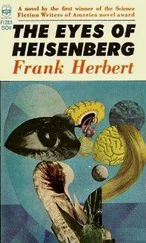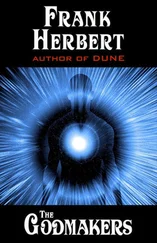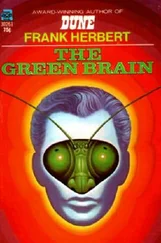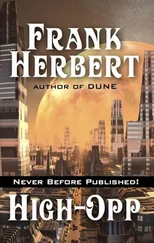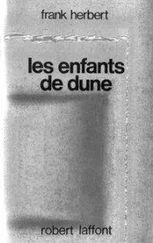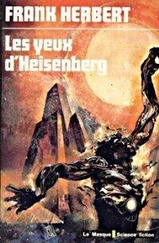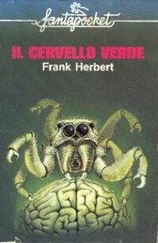Frank Herbert - The Dosadi Experiment
Здесь есть возможность читать онлайн «Frank Herbert - The Dosadi Experiment» весь текст электронной книги совершенно бесплатно (целиком полную версию без сокращений). В некоторых случаях можно слушать аудио, скачать через торрент в формате fb2 и присутствует краткое содержание. Год выпуска: 1969, Жанр: Фантастика и фэнтези, на английском языке. Описание произведения, (предисловие) а так же отзывы посетителей доступны на портале библиотеки ЛибКат.
- Название:The Dosadi Experiment
- Автор:
- Жанр:
- Год:1969
- ISBN:нет данных
- Рейтинг книги:4 / 5. Голосов: 1
-
Избранное:Добавить в избранное
- Отзывы:
-
Ваша оценка:
- 80
- 1
- 2
- 3
- 4
- 5
The Dosadi Experiment: краткое содержание, описание и аннотация
Предлагаем к чтению аннотацию, описание, краткое содержание или предисловие (зависит от того, что написал сам автор книги «The Dosadi Experiment»). Если вы не нашли необходимую информацию о книге — напишите в комментариях, мы постараемся отыскать её.
The Dosadi Experiment — читать онлайн бесплатно полную книгу (весь текст) целиком
Ниже представлен текст книги, разбитый по страницам. Система сохранения места последней прочитанной страницы, позволяет с удобством читать онлайн бесплатно книгу «The Dosadi Experiment», без необходимости каждый раз заново искать на чём Вы остановились. Поставьте закладку, и сможете в любой момент перейти на страницу, на которой закончили чтение.
Интервал:
Закладка:
Occasionally, she mentioned Gar or Tria. He was able to detect the subtle difference in her treatment of that pair.
On their second night together, Jedrik had aroused his sexual appetites softly, deftly. She had treated him to a murmurous compliance, and afterward had leaned over him on an elbow to smile coldly.
"You see, McKie: I can play your game."
Shockingly, this had opened an area of awareness within him which he'd not even suspected. It was as though she'd held up his entire previous life to devastating observation.
And he was the observer!
Other beings formed lasting relationships and operated from a secure emotional base. But he was a product of BuSab, the Gowachin . . . and much that had gone before. It had become increasingly obvious to him why the Gowachin had chosen him to groom for this particular role.
I was damaged and they could rebuild me the way they wanted!
Well, the Gowachin could still be surprised by what they produced. Dosadi was evidence of that. They might not even suspect what they'd actually produced in McKie.
He was bitter with a bitterness he knew must've been fermenting in him for years. The loneliness of his own life with its central dedication to BuSab had been brought to a head by the loneliness of this imprisoned planet. An incredible jumble of emotions had sorted themselves out, and he felt new purpose burning within him.
Power!
Ahhhh . . . that was how it felt to be Dosadi!
He'd turned away from Jedrik's cold smile, pulled the blankets around his shoulder.
Thank you, loving teacher.
Such thoughts roamed through his mind as he stood alone in the room the following day and began to make the bed. After her revelation, Jedrik had resumed her interest in his memories, napping only to awaken him with more questions.
In spite of his sour outlook, he still felt it his duty to examine her behavior in every possible light his imagination could produce. Nothing about Dosadi was too absurd. He had to build a better picture of this society and its driving forces.
Before returning to Jedrik's room, he'd made another tour of the training courtyard with her. There'd been more new weapons adapted from his kit, and he'd realized the courtyard was merely Jedrik's testing ground, that there must be many more training areas for her followers.
McKie had not yet revealed to her that Aritch's people might terminate Dosadi's people with violence. Shed been centering on this at dawn. Even while they shared the tiny toilet cubicle off her room she'd pressed for answers.
For a time, McKie had diverted her with questions about Pcharky. What were the powers in that cage? At one point, he'd startled her.
"Pcharky knows something valuable he hopes to trade for his freedom."
"How'd you know?"
"It's obvious. I'll tell you something else: he came here of his own free will . . . for whatever purpose."
"You learn quickly, McKie."
She was laughing at him and he glared at her.
"All right! I don't know that purpose, but it may be that you only think you know it."
For the briefest flicker, something dangerous glared from her eyes, then:
"Your jumpdoors have brought us many fools, but Pcharky is one of the biggest fools. I know why he came. There've been many like him. Now . . . there is only one. Broey, for all of his power, cannot search out his own Pcharky. And Keila Jedrik is the one who frustrates him."
Too late, she realized that McKie had goaded her into this performance. How had he done that? He'd almost found out too much too soon. It was dangerous to underestimate this naive intruder from beyond the God Wall.
Once more, she'd begun probing for things he had not yet revealed. Time had protected him. Aides had come urging an early inspection of the new weapons. They were needed.
Afterward, they'd gone to the command post and then to breakfast in a Warren dining room. All through breakfast, he'd plied her with questions about the fighting. How extensive was it? Could he see some of the prisoners? Were they using the weapons built from the patterns in his kit? Were they winning?
Sometimes she merely ignored his questions. Most of her answers were short, distracted. Yes. No. No. Yes. McKie realized she was answering in monosyllables to fend him off. He was a distraction. Something important had been communicated to her and he'd missed it. Although this angered him, he tried to mask the emotion, striving to penetrate her wall of concern. Oddly, she responded when he changed his line of questioning to the parents of the three children and the conversation there.
"You started to designate a particular place: 'Beyond the . . .' Beyond what?"
"It's something Gar, thinks I don't know. He thinks only his death fanatics have that kind of rapport with the Rim."
He stared at her, caught by a sudden thought. By now, he knew much about Gar and Tria. She answered his questions about them with candor, often using him openly to clarify her own thoughts. But - death fanatics?
"Are these fanatics homosexual?"
She pounced.
"How'd you know?"
"A guess."
"What difference would it make?"
"Are they?"
"Yes."
McKie shuddered.
She was peremptory.
"Explain!"
"When Humans for any reason go terminal where survival of their species is concerned, it's relatively easy to push them the short step further into wanting to die."
"You speak from historical evidence?"
"Yes."
"Example."
"With rare exceptions, primitive Humans of the tribal eras reserved their homosexuals as the ultimate shock troops of desperation. They were the troops of last resort, sent into battle as berserkers who expected, who wanted, to die."
She had to have the term berserkers explained, then showed by her manner that she believed him. She considered this, then:
"What does your ConSentiency do about this susceptibility?"
"We take sophisticated care to guide all natural sexual variants into constructive, survival activities. We protect them from the kinds of pressures which might tip them over into behavior destructive of the species."
Only later had McKie realized she had not answered his question: beyond what? She'd rushed him off to a conference room where more than twenty Humans were assembled, including the two parents who'd made the chart about Tria and Gar. McKie realized he didn't even know their names.
It put him at a disadvantage not knowing as many of these people by sight and name as he should. They, of course, had ready memories of everyone important around them and, when they used a name, often did it with such blurred movement into new subjects that he was seldom sure who had been named. He saw the key to it, though. Their memories were anchored in explicit references to relative abilities of those around them, relative dangers. And it wasn't so much that they concealed their emotions as that they managed their emotions. Nowhere in their memories could there be any emotive clouding such as thoughts of love or friendship. Such things weakened you. Everything operated on the strict basis of quid pro quo, and you'd better have the cash ready - whatever that cash might be. McKie, pressed all around by questions from the people in the conference room, knew he had only one real asset: he was a key they might use to open the God Wall. Very important asset, but unfortunately owned by an idiot.
Now, they wanted his information about death fanatics. They milked him dry, then sent him away like a child who has performed for his elders but is sent to his room when important matters are brought up for discussion.
***
The more control, the more that requires control. This is the road to chaos.
- PanSpechi aphorismBy the fourth morning of the battle for Chu, Tria was in a vile humor. Her forces had established lines holding about one-eighth of the total Warren territory, mostly low buildings, except along Broey's corridor to the Rim. She did not like the idea that Jedrik's people held an unobstructed view down onto most of the death fanatics' territory. And most of those leaders who'd thrown in their lot with Tria were beginning to have second thoughts, especially since they'd come to realize that this enclave had insufficient food production facilities to maintain itself. The population density she'd been forced to accept was frightening: almost triple the Warren norm.
Читать дальшеИнтервал:
Закладка:
Похожие книги на «The Dosadi Experiment»
Представляем Вашему вниманию похожие книги на «The Dosadi Experiment» списком для выбора. Мы отобрали схожую по названию и смыслу литературу в надежде предоставить читателям больше вариантов отыскать новые, интересные, ещё непрочитанные произведения.
Обсуждение, отзывы о книге «The Dosadi Experiment» и просто собственные мнения читателей. Оставьте ваши комментарии, напишите, что Вы думаете о произведении, его смысле или главных героях. Укажите что конкретно понравилось, а что нет, и почему Вы так считаете.

